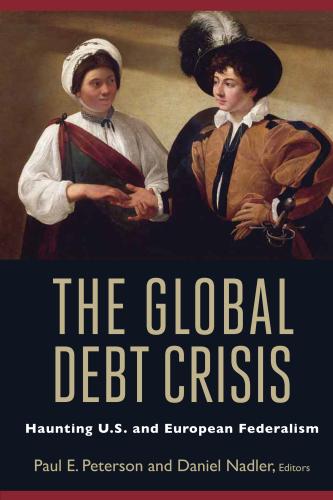Studies in this week’s Hutchins Roundup find higher income borrowers received higher amounts of CARES Act debt forbearance, online recruiting has little impact on job match quality, and more.
Want to receive the Hutchins Roundup as an email? Sign up here to get it in your inbox every Thursday.
CARES Act forbearance offered bigger per capita benefit to high-income individuals
In response to the COVID-19 pandemic and resulting recession, the government mandated debt forbearance for mortgages and student loans through the CARES Act. Using a dataset of 20 million borrowers, Susan F. Cherry of Stanford and co-authors show that, during the period of March to October 2020, about 8% of all mortgages, 36% of student loans, 7% of auto loans and 5% of revolving loans entered forbearance, resulting in a $2 trillion increase in loans in forbearance. Although individuals with lower income and lower credit scores were more likely to obtain forbearance relief, the dollar value of their debt was smaller, resulting in borrowers with higher pre-pandemic income receiving a larger dollar amount of debt relief per individual. Debt forbearance, they conclude, provided significant relief to financially vulnerable individuals with higher pre-pandemic incomes who may have been ineligible to receive assistance through other policies such as stimulus checks. The authors suggest that the large amount of debt relief may help explain why delinquencies have not increased during the pandemic.
Despite ease of access, online recruiting has little effect on job match quality
Online job search and recruiting tools have made information about the job market more easily available to both job seekers and employers—but have they led to better matches? Nicole Gürtzgen of Germany’s Institute for Employment Research and co-authors use variation in the expansion of high-speed internet across municipalities in Germany to estimate the effect of online recruiting on job match quality—but find little to no effect on the wages of new hires or how long they remained in the position. Furthermore, explicit comparison of online versus non-online hires using the IAB Job Vacancy Survey shows only a slight effect on employment stability and none on wages. This counterintuitive result may be reflecting an adverse side effect of online recruitment’s accessibility, the authors say. Their results show that online recruiting increases vacancy postings and nearly quadruples the number of applicants per posting, raising both employer screening costs and the number of unsuitable candidates in the applicant pool.
US Treasuries yields increasingly affected by international economies
Don H. Kim and Marcelo Ochoa of the Federal Reserve Board find evidence that interest rates on U.S. Treasury debts are increasingly influenced by foreign economic news rather than domestic fundamentals. While U.S. economic news explained about 30% of the overall variation in 10-year Treasury yields between 1992 and 1996, it only explained 8% of the variation between 2015 and 2019, they find. Conversely, the explanatory power of foreign shocks on U.S. yields increased from 13% to 30% over the same periods. They also estimate between 2010 and 2017, 20% to 25% of daily variations in 10-year Treasury rates were due to foreign shocks. Since yields on long-term debt are more correlated across countries than short-term yields, the authors posit that the spillover effects move primarily through the term premium (the extra yield demanded by investors for the risk of long-term lending) rather than expectations channel. Specifically, when negative economic news depresses foreign yields, U.S. Treasuries become relatively more attractive, thus lowering U.S. rates.
Chart of the week: US federal debt is projected to increase rapidly, but growth in debt servicing costs remains modest.
Source: Congressional Budget Office via the Wall Street Journal
Quote of the week:
“I believe in a strong and equitable U.S. economy that delivers good jobs with rising wages for all Americans. Maintaining confidence in the long-term strength of the U.S. economy and the stability of the U.S. financial system is good for America as well as our trading and investing partners,” says Janet Yellen, nominee for U.S. Treasury Secretary.
“I believe in market determined exchange rates. The value of the U.S. dollar and other currency should be determined by markets. Markets adjust to reflect variations in economic performance and generally facilitate adjustments in the global economy. The United States does not seek a weaker currency to gain competitive advantage, and we should oppose attempts by other countries to do so. The intentional targeting of exchange rates to gain commercial advantage is unacceptable. If confirmed, I will work to implement president-elect’s promise to oppose any and all attempts by foreign countries to artificially manipulate currency values to gain an unfair advantage in trade.”












Commentary
Hutchins Roundup: Debt forbearance, online recruiting, and more
January 21, 2021